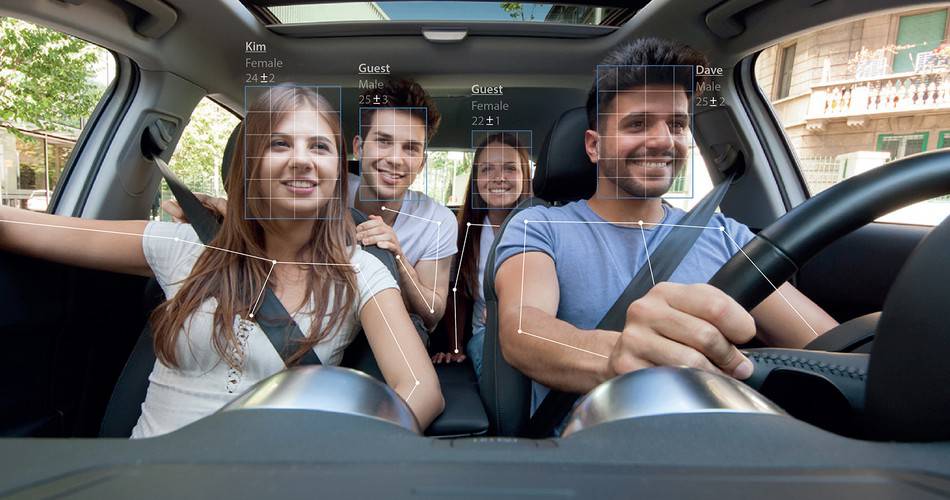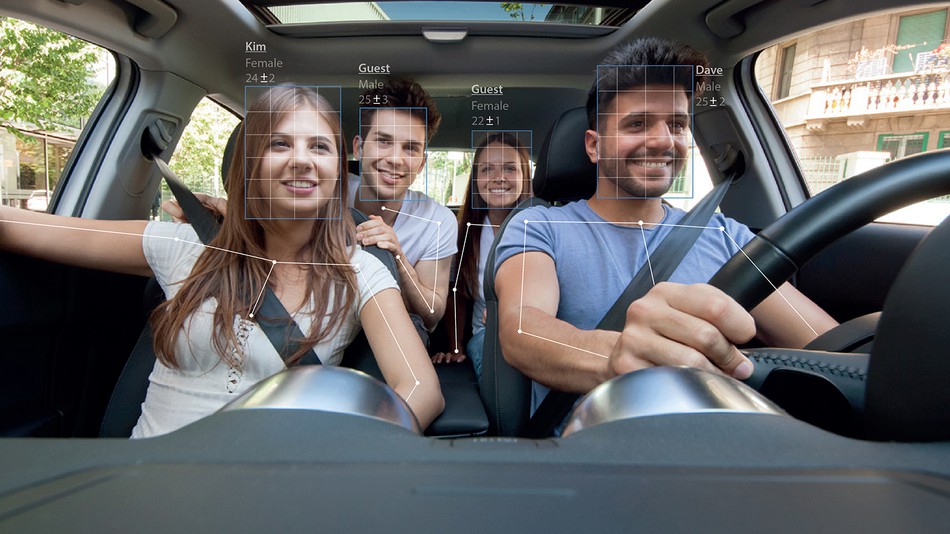Imagine taking a ride in someone else’s car and having the vehicle learn pretty much everything about you in mere seconds. Pretty sci-fi, right?
Actually no, it’s a technology that already exists. Israeli AI company Eyesight Technologies has unveiled CabinSense, an in-car occupancy monitoring system that can scan and analyze car passengers even more than a drowsiness detection system does with the driver.
As soon as a person gets into a CabinSense-equipped car, the system scans their face, identifies who they are and records their age, gender, height and body mass, and position in the seat.
Why would anyone want all that attention directed on the passengers? According to Eyesight, the monitoring contributes to a safer car ride since it can tell if the passenger is wearing a seatbelt and sitting safely. It can also disable airbags when detecting child seats, passengers sleeping across the back seats, or a child in an adult’s lap, thus preventing injury from the impact of the airbag.
The idea is that regular passengers can enroll in the program, allowing the system to quickly recognize them and recall them from its database. As a result, it could quickly apply the preferred settings such as temperature, seat adjustments, or media choices.
However, for occasional passengers, CabinSense could have some damaging consequences when it comes to privacy. For example, the car will “remember” a passenger that uses the car for the second time. As Mashable puts it, that could be used as the perfect instrument to catch someone cheating, for example. Which might be useful to the cheated, but does raise many concerns when it comes to how personal data is used.
Things get even more complicated in a ride-hailing scenario. Eyesight argues CabinSense will eventually offer an object detection function that will alert the driver when a passenger leaves a phone or wallet in the backseat. It will also be used to monitor activity, detecting if passengers are drinking or smoking — or who knows what else…
That could open a Pandora’s box, as passengers would have every reason to sue for privacy breach. If this tech is adopted, we guess attorneys will have a field day.









